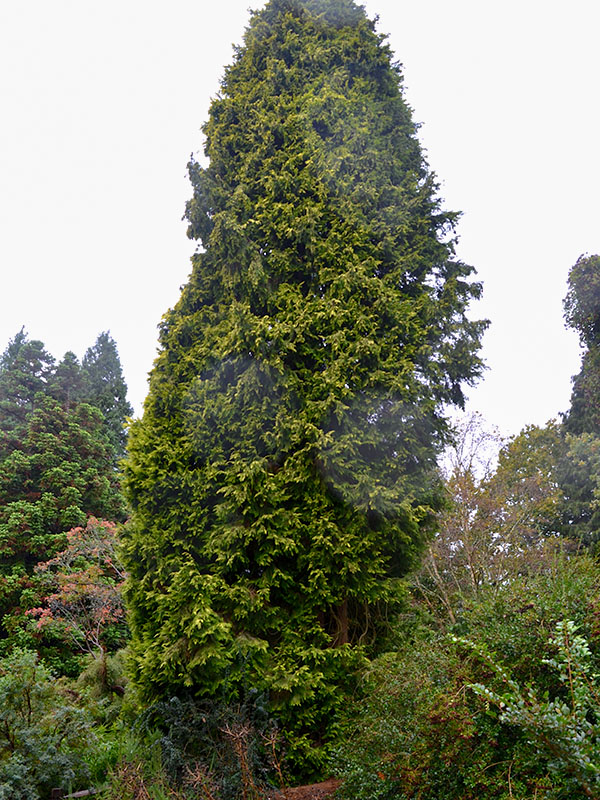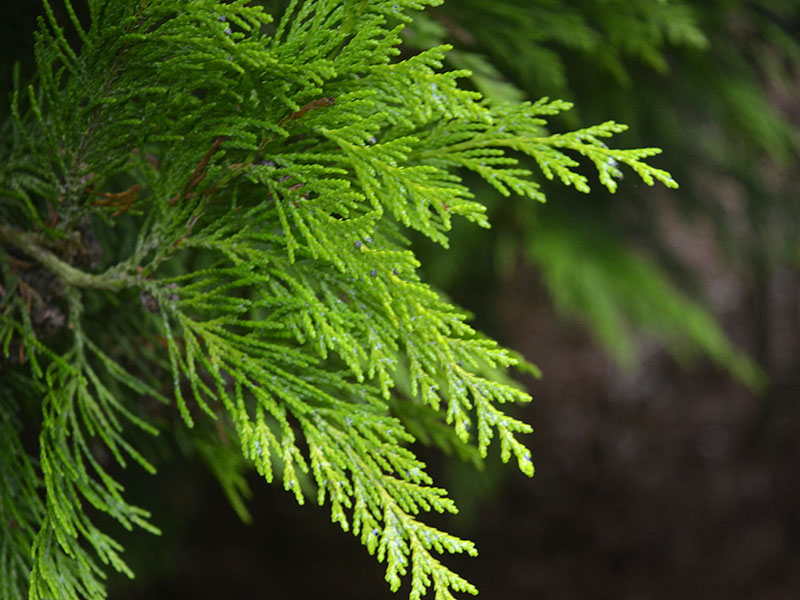
Woody > Chamaecyparis > Chamaecyparis lawsoniana > Chamaecyparis lawsoniana 'Oliver Slocock'
Chamaecyparis lawsoniana
'Oliver Slocock'
| Family |
| Cupressaceae |
| Genus |
| Chamaecyparis |
| Species |
| lawsoniana |
| Cultivar |
| 'Oliver Slocock' |
| Category |
| Woody |
| Type |
| Tree (evergreen) |
| USDA Hardiness Zone |
| 5b - 7a |
| Canadian Hardiness Zone |
| 4b - 6b |
| RHS Hardiness Zone |
| H6 - H7 |
| Temperature (°C) |
| -32 - (-18) |
| Temperature (°F) |
| -25 - 10 |
| Height |
| 30 - 70 m |
| Spread |
| 5 - 10 m |
Photographs
Description and Growing Information
Flowering Period
| General Description |
| Large pyramidal tree, very dense, nearly vertical branching system that fattens out with the foliage. Small blue fruit that turns reddish brown in the autumn. The fruit does not hold much interest in the autumn. |
| Cultivation |
| Prefers well drained moist soil; full sun or partial shade; protection from cold winds; and lower night temperatures. If transplanted it is best balled and burlapped. Neutral to acidic soils are preferred. It will grow thin with poor colour in densely shaded areas. |
| Shape |
| Conical or columnar, branches grow nearly straight upwards. Very large dense tree. |
| Growth |
| Medium |
| Pests |
| Relatively pest and disease free, but a fungus called Phytophthora lateralis is rapidly killing these trees in the mountainous regions of Oregon and Northwest California. This fungus rots the roots and can completely kill these trees. |
| Habitat |
| Horticultural origin. |
| Notable Specimens |
| Wakehurst Place, Ardingly, Haywards Heath, Sussex, England. |
| Propagation |
| Germination by seed is low due to poor viability; the seed is thin and weak. This tree can be propagated by cuttings taken in the autumn. Cuttings taken in October that are placed in a sand peat moss mix root very easily. |

